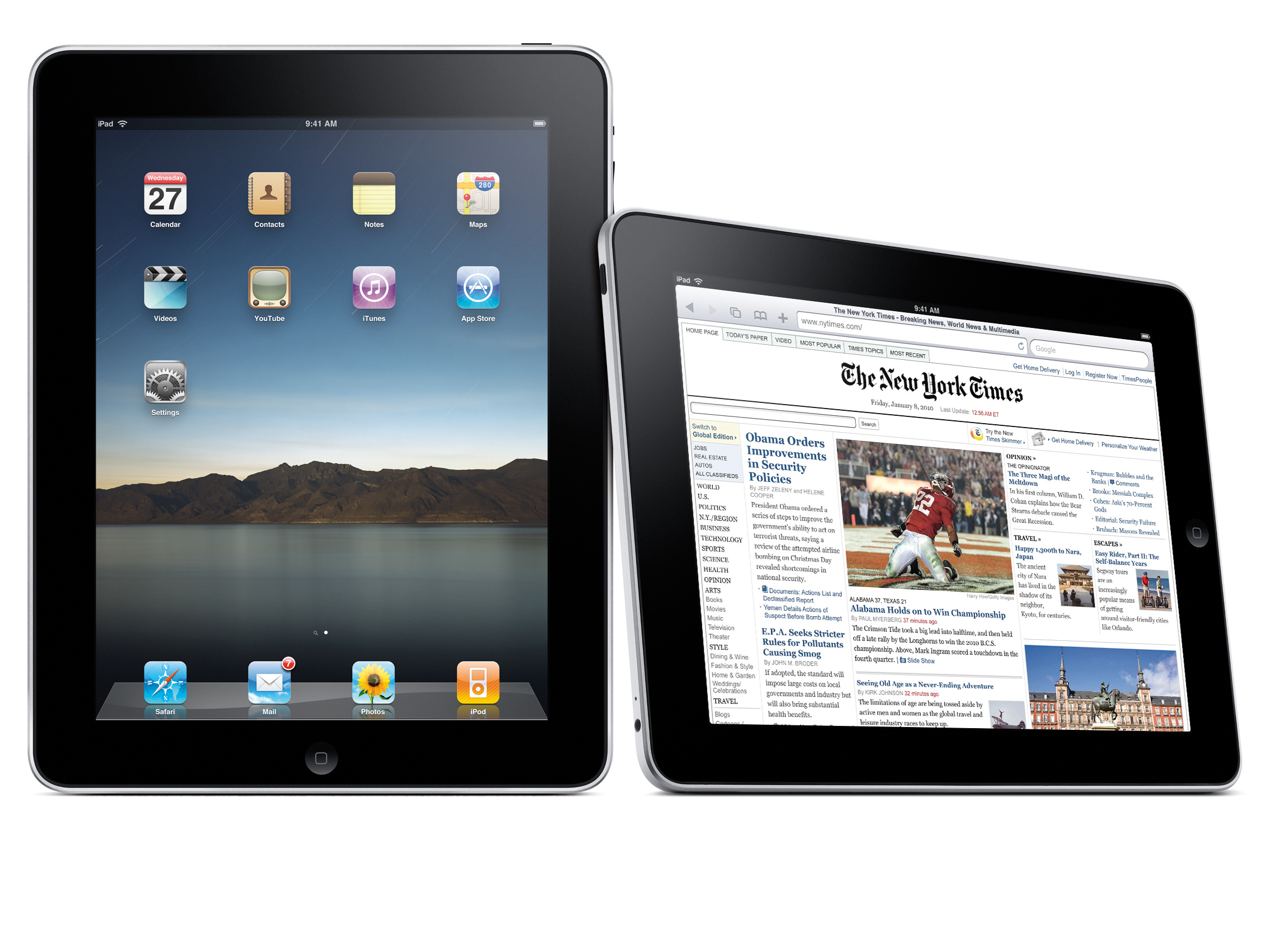What the iPad could do for ebooks
Mini-revolution in book and magazine publishing on the way?

People have been reading and writing books for hundreds of years, and in that time very little has changed.
Although techniques and technologies have let us produce higher quality books cheaper and more quickly, the book of today – characters printed in ink on a series of paper pages bound together along one edge – would be remarkable to a 16th-century person only for its sheer quality. However, things may be about to change completely…
We've been teased with the promise of ebooks (novels and similar works presented not on printed pages but on a dynamic screen) for years, but it looks like the industry is about to make good on that promise. So, what's changed?
It's the sum of lots of tiny advances. Technology has improved and become cheaper, and indeed many hardware manufacturers are turning to a completely new display technology called E Ink that's easier on the eye than traditional flatscreens, and can make a battery charge last longer.
People are also more comfortable with the idea of buying non-physical goods on the internet these days, and, ultimately, there's more industry interest (either from a few progressive publishers themselves, or because of pressure from retailers such as Amazon and Barnes & Noble, to sell the technology).
And now, there's another factor: Apple. When it unveiled the iPad at the end of January, one unexpected announcement (unexpected only because Steve Jobs had been so apathetic in public comments about reading books) was an iBooks app that would enable you to buy books from Apple's store, to read on your iPad.
What's particularly interesting here is not so much the idea of reading books on the iPad. No, what's interesting is what Apple could do to the ultraconservative publishing industry.
Sign up for breaking news, reviews, opinion, top tech deals, and more.
Many would argue that Apple's iTunes Store was the single greatest catalyst in creating a sustainable market for legal music downloads, and it's eminently possible that we'll see a mini-revolution in book and magazine publishing in the next five years that can be directly attributed to Apple's App Store and new iBookstore.
Already, we've seen Amazon – no bit-part player – forced to back down over its aggressive new contracts and pricing structures. So, what's so great about ebooks? Why is E Ink so special? And how can you publish yourself without a literary agent?
Q. Why is an ebook better than a physical book?
Ebooks are, of course, 'smaller' than physical books. The 2GB Amazon Kindle, for example, holds around 1,500 books (in real book terms, that's around 80 stone in weight), which can be stored and carried around – ideal when commuting or holidaying.
You can also buy an ebook more easily and quickly than a physical book, so if you get a midnight craving for Jilly Cooper, you can satisfy it immediately.
In theory, ebooks ought never to go out of print. And because distribution costs are lower, ebooks could make it easier for small publishers and individuals to get into the market. Some stores will allow you to re-download purchased ebooks should you lose your reader – a lost paperback is truly lost, however.
Finally, some ebook readers can do stuff that's impossible in paper format: change the size of the text, read aloud, hook into the internet, sync your place in your book across multiple devices and more.
Q. Why is a physical book better than an ebook?
It's cheaper. While the price of an individual ebook is often lower than the hardback, you need to factor in the cost of the iPad, Kindle, Nook or whatever device you buy. Physical books are also more robust than those devices – dropping one on the floor isn't the disaster it would be with an iPad, say.
That robustness isn't simply in the medium, though; a book isn't going to stop working just because it's out of electricity, and no change in technology or politics will render your book unreadable, as might be the case in the fast-paced, DRM-laced world of ebooks.
And let's not forget that many people simply prefer physical books, either because they like being able to easily scribble notes and flick through the pages, because they appreciate the artistry of good typography and cover design, or simply because they appreciate books as objects. Oh, and you can loan and sell a physical book, which is hard to do with ebooks, though some have tried to implement systems that allow it.